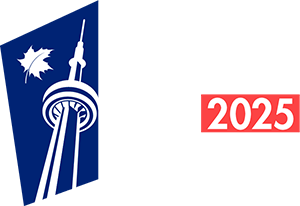Find Your Property Type
Learn how we assess the value of each property type.
Most properties fall under one of the following classes, while some may have more than one class assigned to the same property.
- Residential properties
- Commercial properties
- Farm properties
- Hospitality
- Managed forests
- Multi-residential properties
- Industrial properties
- Large and special purpose properties
- Other property types
- Special structures
Residential properties
Residential properties include a single-family structure, available for occupation for non-business purposes. Your residential property may be:
- A detached or semi-detached home or another type of multi-unit structure such as a condominium.
- In a small or large urban area, rural or waterfront location.
Learn about residential property assessments.
Commercial properties
If your property meets one or more of the following criteria, we consider it to be a commercial property.
- It is used for retail, food service, office or other general commercial uses.
- It is a multi-purpose building that typically includes finished walls, flooring, lighting and other finishes.
- It doesn't have many special purpose features, such as unique layout or materials, that would limit its use or functionality.
- It can usually be converted to another use without extensive alterations.
Learn about commercial property assessments.
Farm
Farmland is generally described as “any tract of land devoted solely to agricultural purposes, under the management of a tenant or owner.” This includes (but isn't limited to):
- field crops
- livestock raising, breeding and grazing (i.e. cattle, swine)
- poultry rearing, hatchery
- dairy farming
- fruit orchards and vineyards
- maple syrup-producing properties (subject to criteria set out in Ontario Regulation 286/04)
- board and maintenance of horses (subject to criteria set out in Ontario Regulation 100/05)
- horticulture, including sod, nursery stock and Christmas trees
- fish farming, including licensed ponds that are used to propagate/culture and sell bass and trout
- fur farming
- beekeeping
This definition of farmland does not include property or portions of property used for:
- Retailing of goods or services.
- Storage of primary agricultural commodities for others as a business operation.
- Maintenance of livestock or other animals for recreational purposes.
- Manufacturing of primary agricultural commodities.
- The breeding and raising of pets.
Learn about farm property assessments.
Hospitality
MPAC's hospitality property category includes:
- Golf courses that may be daily fee or exclusive courses.
- May offer a range of service levels from a simple check-in booth to more extensive facilities, including restaurants, pro shops, concessions, locker rooms and other recreational facilities (such as tennis courts).
- Hotels that vary from small, budget hotels to very large convention hotels, luxury hotels and resort hotels.
- Long-term care homes can be relatively small properties, mid-range or large establishments with a variety of facilities. They include nursing homes, senior care centres and some retirement homes.
- Motels that provide short- or long-term lodging.
- Retirement home properties may:
Learn about hospitality property assessments.
Managed forests
Many managed forests are part of larger properties that are also used for residential, recreational, farm or commercial purposes. To receive an official designation (and the related tax incentive), you must apply for and be granted the designation.
Learn about managed forests and conservation land property assessments.
Multi-residential properties
Multi-residential properties:
- May include low, medium or high-rise apartments, row houses, bachelorettes or multi-room suites.
- Have seven or more self-contained (kitchen, bathroom and separate entrance) units.
Learn about multi-residential property assessments.
Industrial properties
General-purpose industrial properties in Ontario have the following characteristics:
- May include warehousing, light manufacturing or other general industrial uses.
- Multi-purpose buildings that typically include office space.
- Special-purpose features are limited.
- Can usually be converted to another use without extensive alterations.
Learn about industrial property assessments.
Large and special purpose
Large and special purpose usually refers to resource-based plants and large manufacturing plants that are designed for special purposes. This includes:
- pulp & paper mills
- saw mills
- value-added wood products manufacturing plants
- mining
- oil refineries
Additional criteria for large manufacturing plants
Aerospace, automotive, chemical, steel
Sectors
- aerospace product manufacturing plants
- automotive assembly plants
- automotive parts manufacturing plants
- chemical manufacturing plants
- steel manufacturing plants
Criteria
- Must be 125,000 square feet or more.
- Must have 20 or more buildings OR use more than 250,000 square feet.
Food, pharmaceuticals
- food manufacturing plants
- pharmaceutical manufacturing plants
Criteria
- Must be 125,000 square feet or more.
Learn about large and special purpose property assessments.
Other property types
Community hubs
Community hubs bring service providers together in one location, such as a school, a neighbourhood centre or another public space. They offer a range of high-quality and accessible community services such as:
- affordable housing
- social services
- cultural services
- recreation services
- adult education
- employment and training
- health services
- legal aid
- senior services
- child-care
- mental health and addiction help
Learn more about community hubs from the Ontario.ca community hub page.
Learn more about how we assess community hubs.
Child care centres
Child care centres are defined under the Child Care and Early Years Act:
A child care centre is a premise operated by a person licensed under this Act to operate a child care centre at the premises. A licensed provider can care for:
- A maximum of six children
- Children under thirteen years of age
- Children under eighteen years of age in the case of a day nursery for children with a developmental disability.
Child care centres can also be part of a school if the care or supervision is provided as a service or program operated by a school board or by the Government of Ontario, and:
- Has a primary purpose that is instructional or extracurricular in nature for students.
- Has an instructional program that is only for students enrolled the school.
Learn more about the criteria and how we assess child care centres.
Co-operative housing projects
A housing co-operative (co-op) is a legal entity that is incorporated for the purpose of providing housing for its members. Housing co-ops may include:
- townhouses
- mid-rise and high-rise apartments
- multiplex properties
- single-family homes
In Ontario, there are two types of housing co-ops:
- equity co-operatives
- non-equity co-operative
These may be incorporated with or without share capital (i.e. “for-profit” incorporated under the Business Corporations Act or “not-for-profit” incorporated under the Corporations Act).
The primary objective of a co-op is to provide housing to members on a democratic and continuing basis.
- In equity co-operatives, members contribute money in exchange for shares and all members have an equal say in how the co-op is run and managed.
- As shareholders, members do not own the real estate, but own a share of the co-operative corporation, which is the owner of the real estate.
- Each member receives an occupancy agreement, which sets out the rules and outlines the rights and obligations of the residents.
- Members can sell their shares to receive at least their initial equity and perhaps some part, or all, of the appreciated value of their shares.
Learn more about how we assess co-operative housing
Housekeeping cottage resort properties
A housekeeping cottage resort is a facility that provides overnight, weekly or longer-term accommodation in a self-contained freestanding cottage unit.
Typically, the facility operator enters the unit only at the end of the guest’s stay to clean and prepare the unit for the next guest.
Learn more about how we assess housekeeping cottage resorts.
Life lease properties
A property is a “life lease” property when you purchase the right to occupy a residential unit owned by another party for a specified period of time. This may either be:
- for your lifetime
- for a defined term of 49 or 99 years
In Ontario, other terms that are used to describe these arrangements include:
- life estate
- life tenure
- equity lease
Agreements or contracts may be referred to by a number of terms such as:
- life lease occupancy agreement
- life lease tenancy agreement
- occupancy agreement
- right to occupy agreement
Life lease projects are usually developed or sponsored by community-based, non-profit organizations that want to provide housing to seniors. These organizations may include:
- non-profit housing
- service clubs
- ethnic community groups
- faith-based groups
- municipalities
In all lease arrangements, the following apply:
- The sponsor retains the ownership of the project and the individual units.
- The purchaser of a life lease unit pays the monthly maintenance fees to cover administration, landscaping, utilities, reserve fund, building insurance and property taxes.
- When occupancy ends, the lease on the unit may be resold at its market value. Both the sale and re-sale terms are detailed in the agreement between the sponsor corporation and the individual unit occupant.
The five basic types of life lease economic models are:
Most life lease projects in Ontario follow the “market value” model. This is when the purchaser pays the full “market value” for the right to occupy the life lease unit.
When the occupancy ends, the resident or their estate will sell the life lease interest for whatever the “market value” is at that time.
Learn more about how we assess life lease properties.
Mobile home parks
A mobile home park is defined as meeting the following criteria:
- Land on which one or more residential units are located.
- The owner of the property retains possession of the land.
- The owner of the dwelling leases the land from the property owner.
- Lease agreements and rental sites are governed by the Residential Tenancies Act, 2006 (RTA).
The RTA does not apply to sites that are short-term or seasonal, such as:</p>
- resorts
- tourist camps
- campgrounds
- trailer parks that are seasonal/temporary only
Learn more about how we assess mobile home parks.
Timeshare properties
A timeshare is a form of property ownership in which individuals purchase partial ownership interests in, or rights to use, accommodations at a:
- resort
- condominium
- apartment
- other facility
There are two types of timeshare agreements:
- Deeded agreements which allow the purchaser/owner the right to use the timeshare unit permanently.
- Right-to-Use agreements where the ownership remains with the developer and the purchaser is given the right-to-use the specific resort accommodation for a certain number of years.
Learn more about how we assess timeshare properties.
Special structures on properties
There are three additional structures that are commonly built on or near properties:
- billboards
- solar panels
- wind turbines
Learn more about the effects of these structures on your assessment on our special structures on properties.




